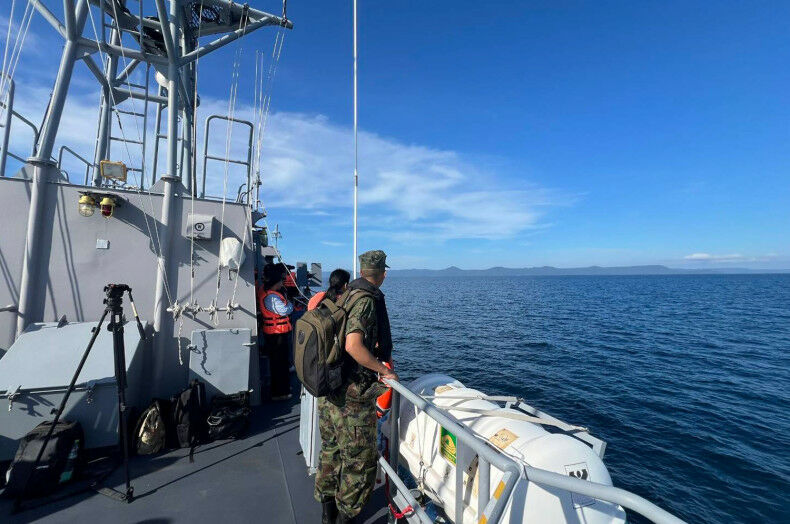Thailand reaffirms sovereignty over Koh Kut amid MoU dispute

The Thai government reinforced its stance that a 2001 memorandum of understanding (MoU) with Cambodia serves as a mechanism to safeguard Thailand’s interests.
Officials insist that Thailand retains sole sovereignty over Koh Kut, located in Trat province. This statement comes amidst concerns that the agreement, signed during Thaksin Shinawatra’s tenure as prime minister, could potentially affect Thailand’s sovereignty over the island and the disputed overlapping claims area (OCA) in the Gulf of Thailand.
Deputy Minister Phumtham Wechayachai conveyed this assurance during a visit to Koh Kut, aiming to alleviate fears and clarify misunderstandings regarding the MoU.
On the same day, Thai Pakdee Party chairman Warong Dechgitvigrom, a vocal critic of the Thaksin-era agreement, visited the island to urge the government to annul the MoU. Warong is campaigning to collect 100,000 signatures to support his petition for the MoU’s nullification, arguing that keeping it could compromise Thai sovereignty.
The Palang Pracharath Party, led by Prawit Wongsuwon, also advocates for the MoU’s revocation, highlighting the contentious nature of the agreement within Thailand’s political landscape.
“I believe those who live on the island are still confident they are Thais and the island belongs to Thailand,” Phumtham stated, reinforcing the government’s position. He acknowledged the confusion caused by rumours spread by ultra-nationalist groups regarding the MoU and Koh Kut, which he attributed to political exploitation.
“Undoubtedly, Koh Kut has belonged to Thailand for a long, long time. Thai people live there and government offices are also there,” he affirmed, emphasising the historical connection between the island and Thailand. Phumtham described the 2001 MoU as a crucial mechanism for safeguarding Thailand’s best interests and facilitating negotiations over maritime benefits.
Prime Minister Paetongtarn Shinawatra recently suggested forming a Joint Technical Committee within the next two weeks to begin discussions on the maritime areas claimed by both Thailand and Cambodia. However, Warong insists that the Thai government should first ensure Cambodia ratifies the UN Convention on the Law of the Sea (UNCLOS) to prevent future disputes.
Koh Kut
Warong highlighted that the MoU divides the 26,000-square-kilometre OCA into two sections: an upper part awaiting boundary demarcation negotiations and a lower part earmarked for joint development. He criticised the prime minister for misunderstanding the continental shelf area claimed by Cambodia, which surrounds Koh Kut, suggesting that such an arrangement lacks international consensus.
Cambodia’s intention, according to Warong, was to strategically delineate the area around the island to co-claim energy resources in maritime zones regarded as part of the OCA. The Thai government, however, has countered that the MoU’s map merely outlines each country’s claimed continental shelf area without establishing a definitive maritime boundary.
Thaksin, speaking in Bangkok, clarified that the 2001 MoU does not have binding legal force but serves as a guideline for future negotiations. He stressed that the MoU is acknowledged under international law and the Franco-Siamese Treaty of 1907.
Addressing suggestions linking the MoU to his relationship with Cambodia and former leader Hun Sen, Thaksin dismissed such connections as irrelevant, emphasising that his diplomatic decisions prioritised Thailand’s national interests, reported Bangkok Post.
Thaksin also noted that his brief role as an economic adviser to Cambodia occurred two decades ago, underscoring his advisory roles with other nations as well. Phumtham reiterated this point, defending Thaksin’s past involvement as being unrelated to current diplomatic discussions with Cambodia.
Latest Thailand News
Follow The Thaiger on Google News:


























